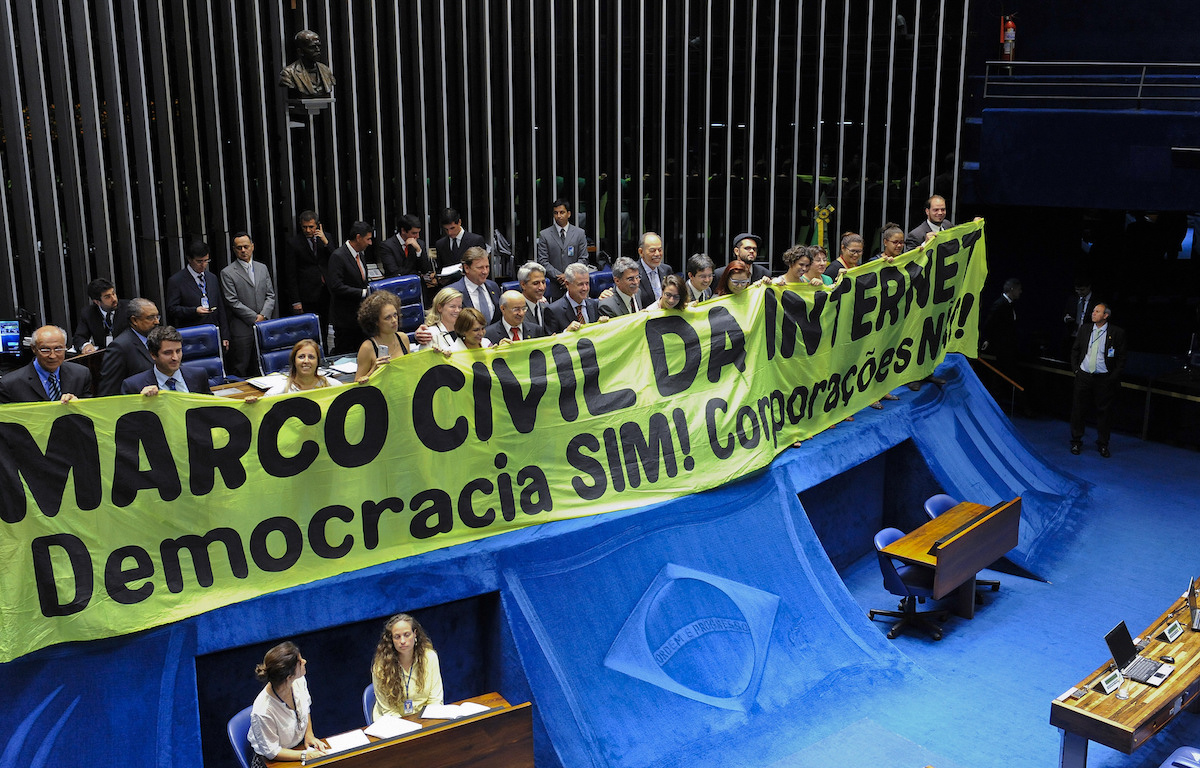Open letter to Telefónica says telcos should push back on government requests for internet shutdowns, not shame companies like WhatsApp
Last Thursday, a court in Brazil ordered telcos to shut down WhatsApp, the most popular mobile messaging service in the country. Telcos complied, and the service was inaccessible to tens of millions of users for hours, until a higher court overturned the order. Access Now condemned the blocking, while Telefónica, one of the world’s largest telcos, used the opportunity to shame WhatsApp. We penned this open letter to Telefónica to explain why all providers must jointly push back against government-ordered shutdowns.
__________
Dear Enrique Medina and Christoph Steck of Telefónica,
Along with many observers around the world, I was astonished to see that Brazil shut down the most popular messaging service in the country, WhatsApp, on Thursday.
This is part of an unfortunate and growing trend. Rather than an exception, internet shutdowns are becoming the norm as more governments order the suspension or throttling of entire networks. Often justified for public safety purposes, shutdowns instead cut off access to vital information and emergency services, plunging whole societies into darkness.
A growing body of jurisprudence declares shutdowns to violate international law. U.N. and regional human rights experts issued an historic statement declaring that internet “kill switches” can never be justified under international human rights law, even in times of conflict. General Comment 34 of the Human Rights Committee, the official interpreter of the International Covenant on Civil and Political Rights, emphasizes that restrictions on speech online must be strictly necessary and proportionate to achieve a legitimate purpose.
In times of shutdown, it is incumbent on the entire tech and telecom sector to join together to assert the rights of their users to freedom of expression, access to information, and assembly. Only by presenting a united front, and calling out the disproportionate and harmful impacts of government-ordered shutdowns, will the sector begin to mitigate and eventually prevent this abusive tactic.
For this reason, we are particularly alarmed by the public response of Telefónica to this incident. Instead of asserting your commitment to freedom of expression — the core value your company’s operations are dependent on — you shame WhatsApp and its parent company Facebook for perceived non-compliance in a criminal court case, and overlook the harmful impact on millions of users.
Without knowing the facts of the case, which is closed to public scrutiny, you assume that the government issued “justified demands,” and that Facebook does “not seem to want to live up to their local responsibility and legal obligations.” You ignore growing international human rights jurisprudence against shutdowns and do not reference international law. What you do reference, including court cases where domains were blocked to prevent access to illegal services, do not apply to the case at hand, as no entity has alleged WhatsApp to be illegal. Further, the Marco Civil does not include any general obligation that “requires digital service providers to cooperate” with the government, as you write. It does assert, however, the Brazilian user’s right to internet access, a right severely and broadly restricted by this court decision.
Your statement appears to waive several of your commitments to the Telecommunications Industry Dialogue, including to “ensure that our services are always available,” to “mitigate potential negative impacts from policies or regulations” in cooperation with other entities, and to collaborate with all stakeholders. Certainly, the Industry Dialogue’s focus on ensuring that government requests comply with due process and human rights standards, like proportionality, deserves more recognition than your policy team acknowledges. From our perspective, your statement isolates stakeholders, blindly supports government positions, and escalates the conflict.
Companies should comply with human rights obligations, and push back on court orders that appear to conflict with basic human rights. A company does not meet its responsibility to respect human rights by handing over “any information requested,” as your statement encourages. Companies that facilitate communication will feel government pressure to provide user information. Whether to fight for user privacy and security is up the company — and whether to continue using a service is up to the users.
Courts, for their part, must consider whether rulings restricting freedom of expression are necessary and proportionate. Fortunately, higher Brazilian courts recognized the lack of proportionality of the wide block, and lifted the restriction on WhatsApp.
You may feel that WhatsApp and Facebook got more attention and sympathy than most telecom companies do when they are besieged by governments. However, Access Now and our partners work diligently and passionately to draw attention to network shutdowns, no matter which service providers are impacted, and will continue to do so. Our RightsCon event in San Francisco will host a number of experts and workshops on the problem of network shutdowns and we invite you to participate.
At the moment, we encourage you to reconsider your position and follow the recommendations for companies in our blog post on the WhatsApp block:
- jointly push back against blanket shutdown requests;
- publish policy commitments against allowing governments to shutdown or throttle networks;
- convene with civil society to discuss the threats posed by shutdowns; and
- transparently disclose any orders to shutdown or throttle networks, as soon as legally possible.
Reaching out to WhatsApp and similarly impacted services, as well as civil society and other stakeholders, is key. Only through collective pushback will tech and telecom companies meet their responsibilities to respect their users’ rights and mitigate abuses, whether government-ordered or otherwise.
Sincerely,
Peter Micek
Global Policy & Legal Counsel
Access Now
__________
